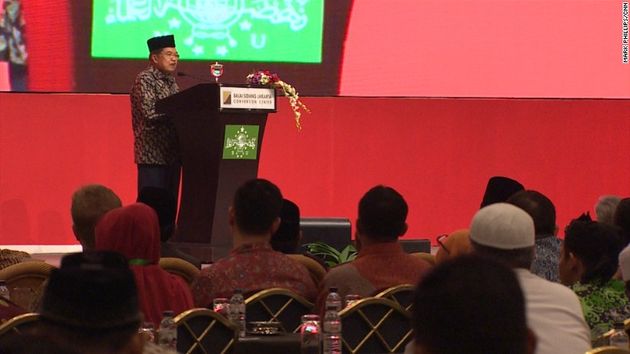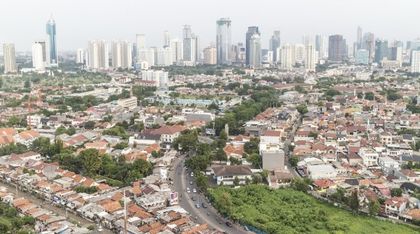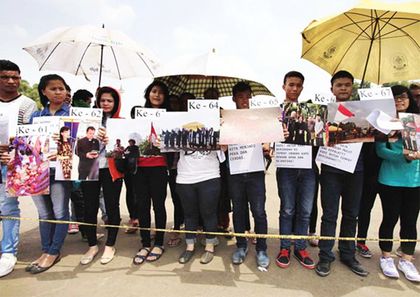300 Muslim leaders stand for “moderate Islam” to fight religious extremism
Nahdlatul Ulama, an Indonesian Muslim organization with 50 million members worldwide, gathered leaders from 35 countries to address the religious aspects of extremism and terrorism.
Christianity Today, Jakarta Post · JAKARTA · 03 JUNE 2016 · 10:45 CET

The radicalism of Daesh has become one of the biggest threats in the world, especially for Christians and other religious minorities. World leaders, including some from the Muslim community, expressed their agreement in fighting against it.
In January, 200 Muslim religious leaders, heads of state, and scholars gathered in Morocco and released the Marrakesh Declaration, a 750-word document which called majority-Muslim countries to protect the freedom of religious minorities, including Christians.
300 MUSLIM LEADERS
Two weeks ago, another 300 Muslim religious leaders from 30 countries did much the same, when they gathered in Jakarta, Indonesia, to denounce extremism and address its causes.
The participants, including Muslim figures from Iran, Syria, Egypt, Turkey, Saudi Arabia and Malaysia, attended the two-day two-day International Summit of Moderate Islamic Leaders (ISOMIL), hosted by Nahdlatul Ulama (NU), the largest Muslim organization in the world.
The event was opened by the vice president of the country, Jusuf Kalla, who denounced what he called “radical youths’ misinterpretation of the idea of jihad."
The Summit aimed to present solutions to conflicts considered to have emerged from a misinterpretation of Islamic teachings.

“MODERATE ISLAM”
The NU promoted what they call “Islam Nusantara”, a moderate form of Islam with a pro-Indonesian spirit to uphold values of peace, modesty and cultural respect, as a paradigm that could be adopted by the world since it merged the concepts of Islam and nationalism as key factors to guard a country's unity, NU central board chairman Said Aqil Siradj said.
“We don't want to dictate to the world” Said Aqil Siradj commented, “but we want to inspire other countries by showing that our concept of Islam could maintain peace and harmony within the diversity of Indonesia."
JAKARTA DECLARATION
Participants signed the Jakarta Statement, which highlighted two main ideas.
Firstly, it said that the way Indonesian Islam accommodates local culture (for example, promoting an ancient Buddhist temple as a historical site) is an example to be imitated.
Secondly, the statement said extremism thrives through poor interpretation of religious heritage.
"The first thing that must be done in order to overcome radicalism and terrorism is to be honest”, said Yahya Cholis Staquf of the Nadhlatul Ulama National Board.
“There may be elements from Islam that are used as a basis or justification for hardline groups to carry out their actions", he added.

“MISINTERPRETATION IS THE CAUSE OF THE CONFLICT”
According to the declaration, “the misinterpretation itself is the cause of the prolonged conflict in the Middle East, where some governments use religious teachings as the base of their political legitimacy, which has given rise to religious extremism.”
Besides, “extremist groups have used economic and political injustice that brought poverty to some Islamic countries, as one of their reasons for unleashing their terror, the declaration states, which then led to a wrong concept of jihad executed by these groups.”
Lebanese cleric Amin Kurdi said he appreciated NU’s “experience in disseminating good, moderate and tolerant Islam.” Lebanon is one of 10 nations to recently announce the establishment of an independent NU branch to promote a peaceful Islam. Forty countries already are special members of the NU central board.
“PROMOTE PEACE AND DO GOOD DEEDS”
"The conclusion of our two-day meeting is the core of jihad, namely to promote peace and do good deeds", Siradj said.
The declaration also urges the Indonesian government to play a constructive role as a mediator to find solutions for the multifaceted conflicts in the Middle East.

In addition, the NU would assist Middle Eastern countries in building mechanisms to connect the concepts of Islam and nationalism, if their governments were open and willing to build alternative bases for their political legitimacy.
NU CAMPAIGN AGAINST DAESH
NU began its ideological campaign against Daesh last fall, establishing a nonprofit in Winston-Salem, NC, to coordinate conferences and seminars promoting a peaceful Islam.
It also partners with the University of Vienna in Austria to study and combat extremist propaganda, and it is especially active in Afghanistan, where 6,000 local religious leaders serve in 22 offices throughout the country.
The Jakarta Declaration is set to be submitted to the President, Vice President, the Coordinating Political, Legal, and Security Ministry as well as foreign embassies in Indonesia soon.
MANY CHRISTIANS ATTACKED IN INDONESIA
Indonesia is the world’s most populous Muslim-majority country. It has been known for its religious peace, although it has suffered several major bomb attacks by Islamic radicals between 2000 and 2009, including a strike on the resort island of Bali in 2002 that killed 202 people. This year, two civilians died in a Daesh terrorist attack.
Recently, a law that requires churches to get permission from the local religious authority before beginning to build has led to the closure of more than 1,000 churches.
Published in: Evangelical Focus - world - 300 Muslim leaders stand for “moderate Islam” to fight religious extremism
